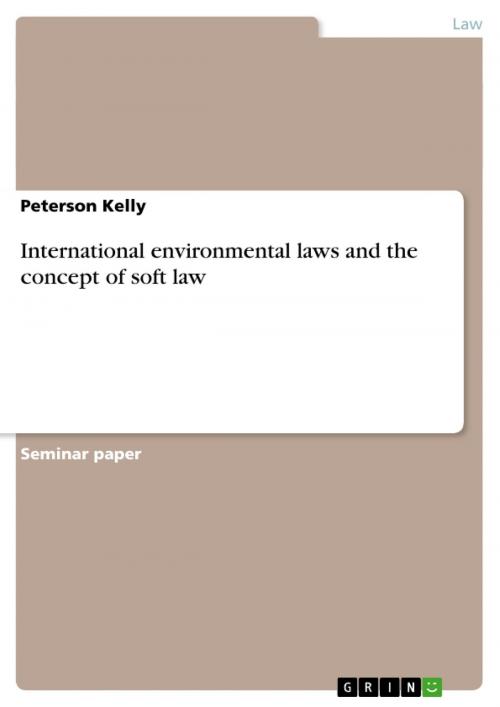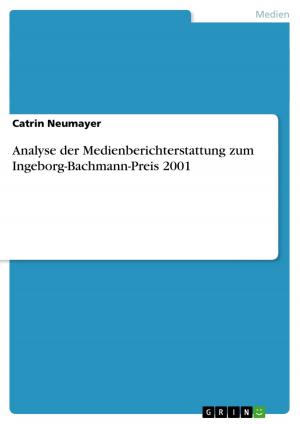| Author: | Peterson Kelly | ISBN: | 9783656741022 |
| Publisher: | GRIN Verlag | Publication: | September 12, 2014 |
| Imprint: | GRIN Verlag | Language: | English |
| Author: | Peterson Kelly |
| ISBN: | 9783656741022 |
| Publisher: | GRIN Verlag |
| Publication: | September 12, 2014 |
| Imprint: | GRIN Verlag |
| Language: | English |
Seminar paper from the year 2012 in the subject Law - Miscellaneous, grade: A, University of Cambridge, language: English, abstract: Soft law regards to international norms that are deliberately non-binding in character, but are of great legal relevance. This has unique policies that lie between law and politics. Noticeable examples include resolutions by international organizations and global plans of actions of conduct. Soft laws operates under a different model from 'hard law' that is associated with legally binding obligations. Furthermore, soft laws are characterized with less degrees of precision when compared with hard laws. Some scholars argue that soft law is ambiguous because its legal effects and its implication is often difficult to identify. Soft law mainly constitutes various part of the modern law-making process. International environmental regulations indicate a successful application of the soft law. Scholars believe that soft law outweighs the classical and familiar legal categories of law that form a platform of international regulations. Soft law is associated with various concerns; however, it has strategic mechanisms for imposing its proposals. The law is primarily structural in nature because it includes the existence and development of an organized network of permanent institutions at international and regional levels. Rio+20 conference provides a practical example of emphasize of soft law in the international environmental regulations. Studies indicate that the Rio+20 seminar on environmental sustainability did not create any successful agreements or commitments; however, it provided a global platform for discussing demanding issues in the effort to secure international sustainable development.
Seminar paper from the year 2012 in the subject Law - Miscellaneous, grade: A, University of Cambridge, language: English, abstract: Soft law regards to international norms that are deliberately non-binding in character, but are of great legal relevance. This has unique policies that lie between law and politics. Noticeable examples include resolutions by international organizations and global plans of actions of conduct. Soft laws operates under a different model from 'hard law' that is associated with legally binding obligations. Furthermore, soft laws are characterized with less degrees of precision when compared with hard laws. Some scholars argue that soft law is ambiguous because its legal effects and its implication is often difficult to identify. Soft law mainly constitutes various part of the modern law-making process. International environmental regulations indicate a successful application of the soft law. Scholars believe that soft law outweighs the classical and familiar legal categories of law that form a platform of international regulations. Soft law is associated with various concerns; however, it has strategic mechanisms for imposing its proposals. The law is primarily structural in nature because it includes the existence and development of an organized network of permanent institutions at international and regional levels. Rio+20 conference provides a practical example of emphasize of soft law in the international environmental regulations. Studies indicate that the Rio+20 seminar on environmental sustainability did not create any successful agreements or commitments; however, it provided a global platform for discussing demanding issues in the effort to secure international sustainable development.















